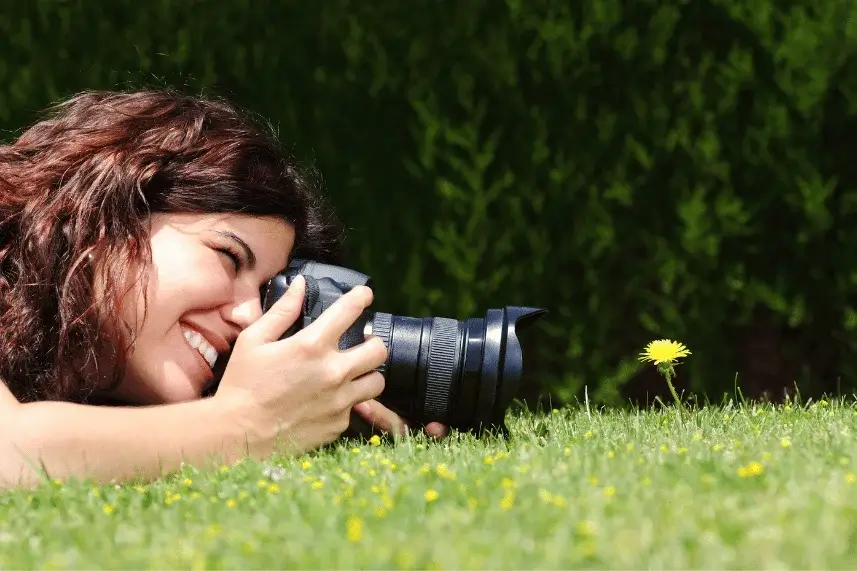Photography is a wonderful art form that allows you to capture and share moments, emotions, and stories. Whether you’re using a smartphone or a dedicated camera, these Photography Tips for Beginners will help you improve your photography skills and take stunning photos.
1. Understand Your Camera
Why It’s Important: Knowing how your camera works is fundamental to taking great photos.
Tips:
- Read the Manual: Start by reading the manual of your camera or smartphone. Understand the functions and settings available.
- Explore Modes: Experiment with different modes (auto, manual, portrait, landscape) to see what works best for various scenarios.
- Practice: Spend time practicing with your camera to become familiar with its features and capabilities.
2. Learn the Basics of Composition
Why It’s Important: Good composition makes your photos visually appealing and engaging.
Tips:
- Rule of Thirds: Imagine your frame divided into nine equal parts by two horizontal and two vertical lines. Place important elements along these lines or at their intersections.
- Leading Lines: Use natural lines (roads, rivers, bridges) to guide the viewer’s eye toward the main subject.
- Framing: Use elements like windows, arches, or foliage to frame your subject and add depth to the image.
- Simplicity: Keep your composition simple and clutter-free to highlight the main subject.
3. Master Lighting
Why It’s Important: Lighting is a key factor in determining the quality and mood of your photos.
Tips:
- Natural Light: Use natural light as much as possible. Early morning and late afternoon (golden hours) provide soft, warm light.
- Avoid Harsh Light: Midday sunlight can create harsh shadows. If you have to shoot during this time, look for shaded areas or use a diffuser.
- Experiment with Angles: Change the direction and angle of light by moving around your subject. Notice how it affects the mood and appearance.
- Use Artificial Light: Learn to use artificial light sources like lamps, flash, or studio lights to enhance your photos when natural light is insufficient.
4. Understand Exposure
Why It’s Important: Proper exposure ensures that your photos are neither too dark nor too bright.
Tips:
- ISO: Controls the camera’s sensitivity to light. A lower ISO (100-200) is ideal for bright conditions; a higher ISO (800-1600) is better for low light but can introduce noise.
- Aperture (f-stop): Controls the amount of light entering the lens and affects depth of field. A lower f-stop (f/1.8) gives a blurred background, while a higher f-stop (f/8) keeps more of the scene in focus.
- Shutter Speed: Determines how long the camera’s sensor is exposed to light. Faster speeds (1/1000s) freeze motion, while slower speeds (1/30s) can create motion blur.
- Exposure Triangle: Balance ISO, aperture, and shutter speed to achieve the desired exposure.
5. Focus on the Subject
Why It’s Important: A sharp focus on the subject draws attention and enhances the overall quality of the photo.
Tips:
- Auto Focus: Use your camera’s auto-focus feature for quick and accurate focusing.
- Manual Focus: In challenging lighting or complex scenes, switch to manual focus for greater control.
- Depth of Field: Adjust the aperture to control the depth of the field and keep your subject in sharp focus while blurring the background.
6. Edit Your Photos
Why It’s Important: Editing helps enhance and polish your photos, bringing out their full potential.
Tips:
- Basic Adjustments: Start with basic adjustments like brightness, contrast, saturation, and sharpness.
- Crop and Straighten: Crop to improve composition and straighten to correct any tilted horizons.
- Filters and Effects: Use filters and effects sparingly to enhance, not overwhelm, the photo.
- Software: Use photo editing software like Adobe Lightroom, Photoshop, or free alternatives like GIMP and Snapseed.
7. Practice and Experiment
Why It’s Important: Consistent practice helps you develop your skills and discover your unique style.
Tips:
- Daily Practice: Take photos daily, even of ordinary subjects, to improve your technique.
- Experiment: Try different genres (portrait, landscape, macro) and techniques (long exposure, black and white).
- Learn from Others: Follow photography blogs, join online communities, and study the work of professional photographers for inspiration and tips.
8. Tell a Story
Why It’s Important: Great photos tell a story and evoke emotions.
Tips:
- Context: Include elements that provide context and background to your subject.
- Emotion: Capture genuine emotions and moments to make your photos more relatable and impactful.
- Sequence: Use a series of photos to tell a complete story, especially in events or travel photography.
Try These Photography Tips for Beginners!
Photography is a journey of continuous learning and exploration. By understanding your camera, mastering the basics of composition and lighting, and practicing regularly, you’ll be well on your way to capturing beautiful and memorable photos. Remember, the best camera is the one you have with you, so start shooting and enjoy the creative process.
Do you have any Photography Tips for Beginners or favorite techniques? Share them in the comments below! If you found this guide helpful, feel free to share it with others who are starting their photography journey.


















Leave a Reply
View Comments